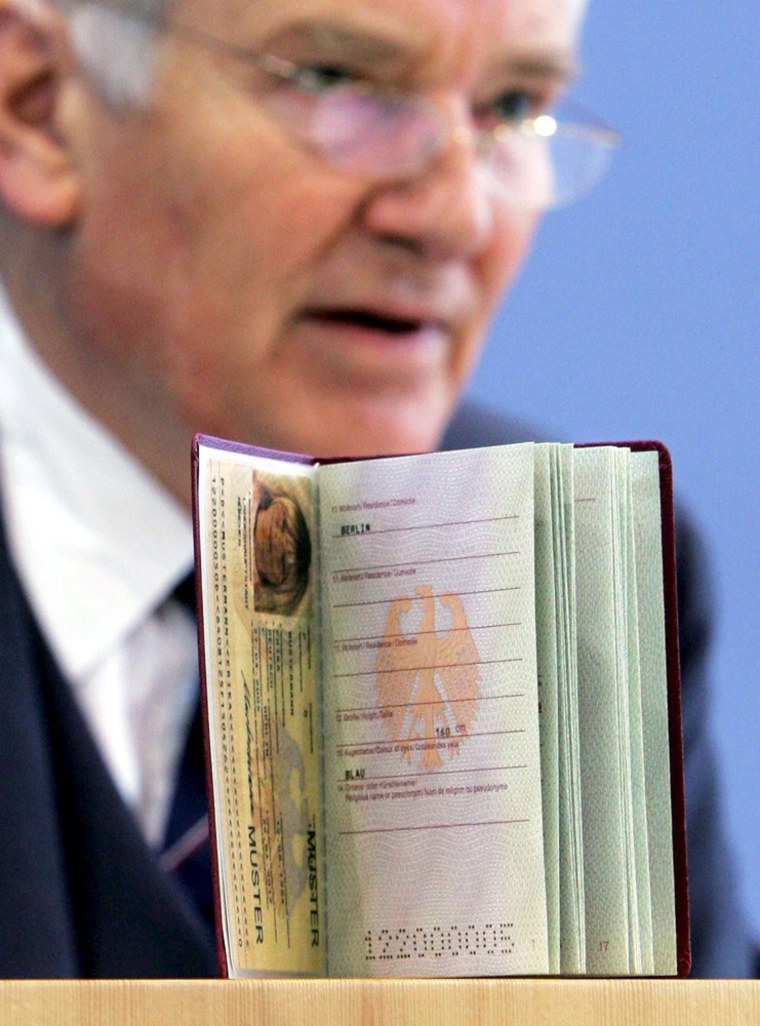The U.S. is poised to drop its demand that European nations and other close allies adopt biometric passports by October, a move aimed at avoiding a serious disruption in transatlantic travel, according to U.S. and European government officials.
However, the compromise could strain relations by differentiating between European countries, and in particular by requiring some French and Italian citizens to obtain visas before they travel to the U.S.
The likely U.S. action, which comes amid travel industry concerns that overseas visitors are deterred from coming to the U.S., would be a significant shift in policy. For more than two years Washington has insisted for security reasons that countries whose citizens can enter the U.S. without visas begin issuing biometric documents that ensure the identity of the passport holder.
The plan is the latest in a series of twists since Congress passed legislation in 2002 that required the 27 countries in the so-called visa-waiver program to start issuing the high-tech passports by October of last year. Brussels has said that some European countries in the program will not be able to meet that requirement until August, 2006.
Congress last year passed a one-year extension of the October deadline, but James Sensenbrenner, chairman of the House judiciary committee, has made it clear he would not support another extension.
But in an effort to avoid travel disruptions, Sensenbrenner has said the law can be interpreted in such a way that nearly all European countries will meet the standard. The law requires visa-waiver countries to meet the passport standards set by the International Civil Aviation Organization, which currently call for biometric information to be contained in a smart chip on the passport.
Sensenbrenner said in April that he was prepared to accept the ICAO standard at the time the law was passed in 2002, which required only a digital photograph rather than a chip. He has criticized the ICAO for becoming "enmeshed in new and unproven technology," and blasted European governments for choosing "an elaborate and expensive path" to meet the requirements. The U.S. has issued passports with digital photos since 1998, but is not yet producing biometric passports.
U.S. officials have conveyed that offer to Brussels as the best way out of the impasse. Otherwise, if the deadline is not extended, citizens from many of the 15 visa-free European countries will be forced to apply for visas to all new passport holders.
Yet the compromise is politically awkward for the EU. Both France and Italy continue to issue passports with laminated photographs that do not even meet the digital standard and are seen as more vulnerable to tampering. It could also trigger tensions among the other European countries because Brussels would have either to accept the U.S. interpretation or consider action against Washington. The EU has lobbied hard for a further year's extension of the deadline because countries are still developing their documents.
William Knocke, spokesman for the U.S. department of homeland security, would not comment on any specific proposals, but said the administration remained "committed to the biometric passport."
